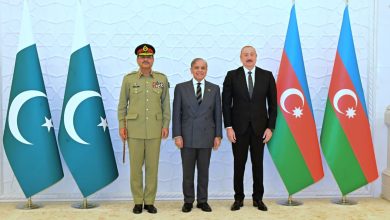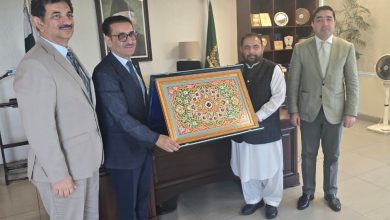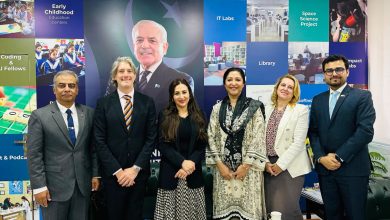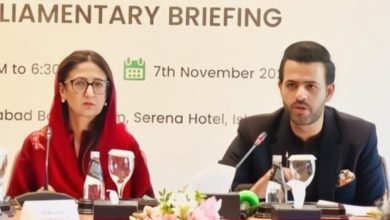ECO Regionalism and Geopolitical Shifts at ISSI Event
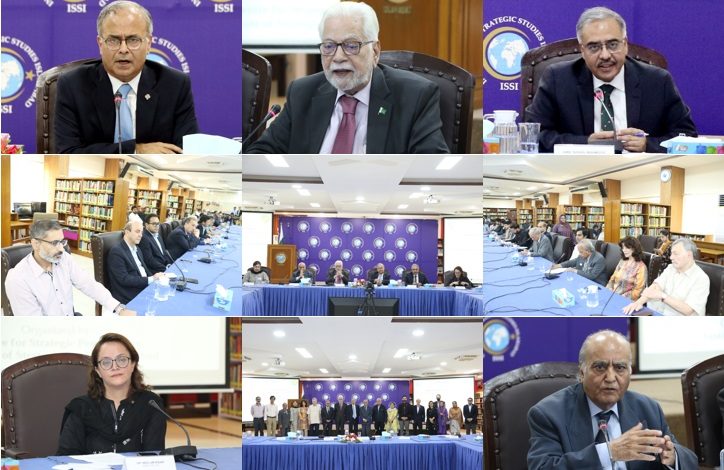
The Institute of Strategic Studies Islamabad (ISSI) recently hosted a public address by Asad Majeed Khan, Secretary General of the Economic Cooperation Organization (ECO), focusing on the region’s evolving geopolitical dynamics and the role of regionalism. The event brought together academics, policy experts, and practitioners to discuss the challenges and opportunities facing the organization and its member states.
Director General of ISSI, Ambassador Sohail Mahmood, opened the session by noting the increasing turbulence in global affairs, marked by intensifying competition among major powers and pressure on multilateral initiatives. He highlighted that while globalization faces serious tests, regional cooperation frameworks like ECO remain resilient, with the potential to serve as a model for regions such as South Asia. Referring to the recent ECO Summit held in Azerbaijan’s Karabakh region—a site formerly associated with conflict—Ambassador Mahmood underlined the event’s symbolism as a summit of transformation and promise.
Despite ECO’s intra-regional trade rising to nearly $96.5 billion in 2022, this still only represented 9.1% of the region’s total trade, suggesting considerable untapped potential. The session also addressed persistent challenges, such as border conflicts, terrorism, sanctions impacting member states, and especially the ongoing tensions between Pakistan and India, which restrict broader regional integration. The recent Israel-Iran conflict has further disrupted important trade and energy supplies, underlining the fragility of the region’s connectivity.
Ambassador Mahmood emphasized Pakistan’s pivotal role as a link between Central Asia and the Arabian Sea, and outlined three main priorities for ECO: building resilient infrastructure, deepening energy collaboration while advancing clean energy transitions, and fostering digital connectivity to empower youth and drive innovation.
In his keynote address, Ambassador Asad Majeed Khan offered a broad overview of ECO’s evolution, from its beginnings as the Regional Cooperation for Development (RCD) in 1964 to its expansion in the mid-1980s to include Central Asian states, Azerbaijan, and Afghanistan. He highlighted the organization’s shared cultural and economic foundations and stressed ongoing efforts to address barriers to trade, infrastructure gaps, and persistent geopolitical tensions. He noted that progress is being made in areas such as energy connectivity and tourism but warned that climate change remains an existential threat for the region, citing floods, droughts, and water shortages as pressing concerns. He called for enhanced collaboration on renewable energy, climate adaptation, and water resource management.
Ambassador Khan also underscored the need for greater private sector engagement in ECO’s activities and emphasized that institutional reform and political will are necessary for the organization to meet its founding vision. He expressed optimism that, with renewed commitment and regional solidarity, ECO can become a more meaningful platform for economic growth and development.
Former Foreign Minister of Pakistan, Ambassador Inam-ul-Haq, reinforced the view that ECO remains a vital mechanism for fostering multilateral cooperation and advised that member countries move beyond singular national interests to embrace collaborative regional strategies. He pointed out that South-South cooperation—through shared expertise, pooled resources, and collective resilience—is more promising than reliance on external support, especially for confronting climate and development challenges.
The event concluded with a dynamic discussion covering topics such as diplomatic engagement, regional trade, energy partnerships, technology and education, youth empowerment, and new security threats. Participants shared diverse perspectives on how the ECO can adapt to meet the evolving demands of the region. Ambassador Khalid Mahmood, ISSI Chairman, closed the session by thanking the speakers and attendees, and presented a memento to Ambassador Asad Majeed Khan in recognition of his insights.

